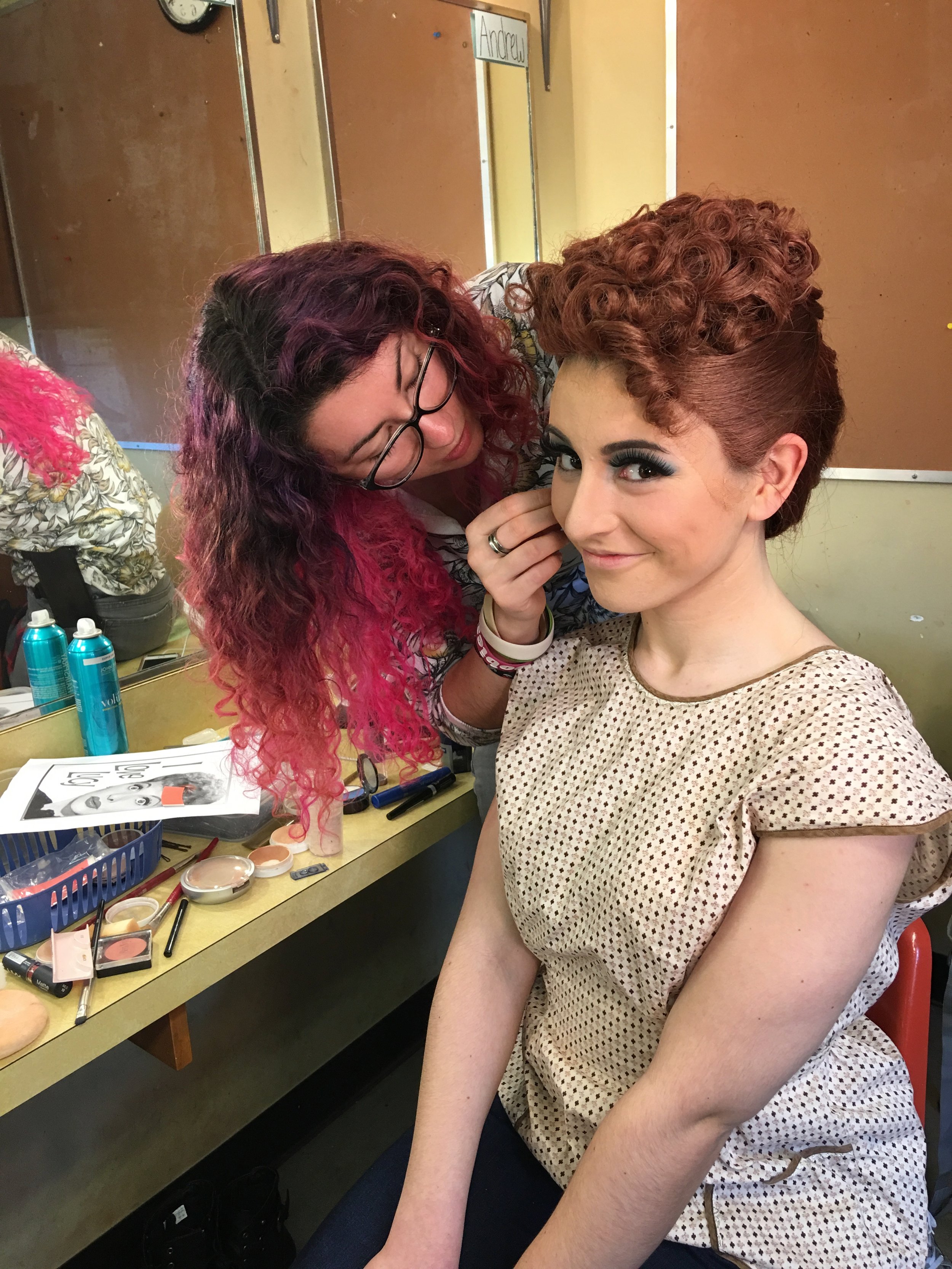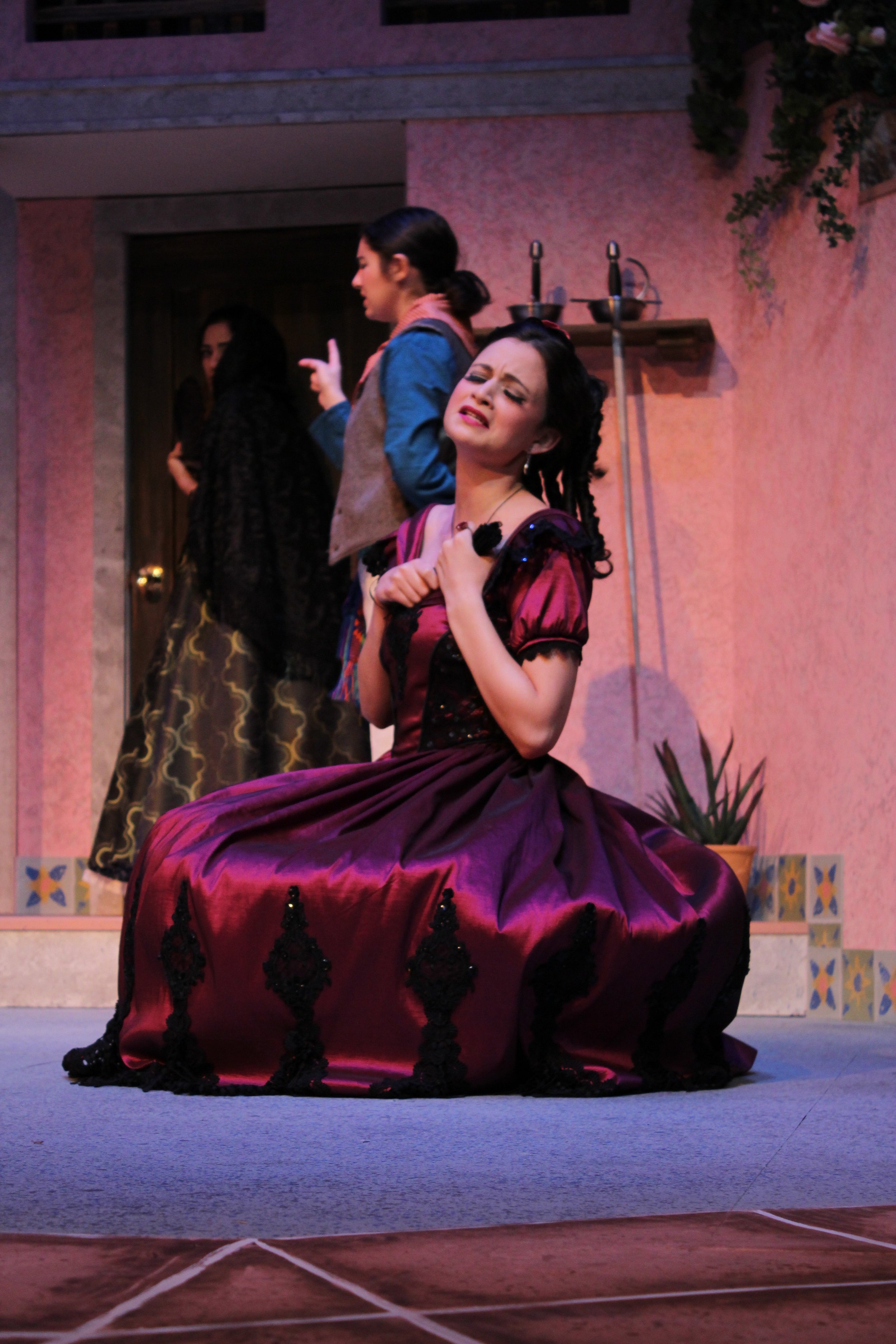PRODUCTION ASSIGNMENTS
PROCESS: Design/Production/Crew assignments for theater productions, including faculty, student, and guest artists, will be made in agreement between the Program Director, theatre faculty and staff. Assignments will be determined by the needs of the play, projected budget, course and graduation requirements.
COMMITMENTS: The commitment level for a mainstage production varies dependent on the size of the show and the kind of role taken on.
Designing: High commitment. Designers start production work well before rehearsals start and continue their obligation through tech week and up until opening night.
GENERAL EXPECTATIONS:
Read script a minimum of 3 times and conduct necessary, exhaustive research - both images and historical/contextual.
Meet with the director and other production team members to determine the approach for the show and be prepared to work with that idea toolbox.
Effectively communicate and collaborate with a director and other creative members on the design team.
Design within the available time, budget and resources given.
Adhere to design deadlines and provide drawings, renderings, lists, and drafting as needed for the timely execution of designs.
Adhere to the budget and obtain approval from the Producer and Program Director when unexpected expenses arise before making purchases.
Attend all production meetings, technical and dress rehearsals.
Changes to design may only be considered if time permits or for safety concerns.
Directing: High commitment. Directors start production work well before rehearsals start and continue their obligation through tech week and up until opening night.
Dramaturg: High commitment. Dramaturgs start production work well before rehearsals start and continue their obligation through tech week and through closing night if they are participating in talkbacks or other show-related programming.
Stage Managing (SM): High commitment. Stage managers are the first to arrive at rehearsals and the last to leave. The work for stage managers typically begins before auditions. See Practicum section for more information.
Asst. Stage Manager (ASM): Medium commitment. Typically called to rehearsals beginning on off-book day, or whenever the stage manager decides they are needed. Responsible for knowing the show just as well as the Stage Manager and assisting in the smooth running of all rehearsals and productions. See Practicum section for more information.
Acting: Medium to High commitment depend on the size of your role. The rehearsal process for a mainstage production typically begins four to six weeks before show week. The size of your role will determine how often you will be called to rehearsal. Actors are expected to be present at all rehearsals they are called for. Best practice is to arrive 10-15 minutes early to your call time whenever possible. The off-book date will be set by the director at the beginning of the rehearsal process; after that date, you are expected to know your lines.
Crew: Low commitment depending on job. There are a few backstage crew positions that need to be filled for each production. These positions are connected to specific Theater Program practicum courses and a call for filling these positions will be sent out by the practicum course instructor at the beginning of every semester. Crew members are typically called for the designer run, tech week and the run of the show only. See Practicum section for more information.

Production Manager

Director

Assistant Director

Scenic Designer

Costume Designer

Makeup Designer

Hair and Wig Designer

Lighting Designer

Sound Designer and Sound Engineer

Projection Designer

Props Designer

Music Director

Choreographer

Fight Choreographer

Intimacy Director

Dramaturg

Stage Manager

Assistant Stage Manager

Cast Deputy

Fight Captain

Dance Captain

Actor

Understudies/Standbys/Swings

Deck Crew

Lead Electrician

Light Board Operator

Sound Board Operator

Spotlight Operator

Wardrobe Manager
